Colon, Panama
Celebrity Equinox Cruise
An amazing sight met our eyes as we approached Panama. Dozens of ships anchored off shore, awaiting transit through the Canal, or so we presumed. The sky lightened to a cloudy day.
We took a tour to Safarick’s Zoological Park and Gatun Locks. Our guide, a young woman, hardly spoke at all. She offered very little information. Later she told us this was her fifth tour and she’s sixteen years old. Obviously, she needs more training.
The city was a garbage dump, literally. There’s trash everywhere, mounded by the roadside and strewn across yards. Stray dogs roam around and scavenge off the trash. It’s amazing that disease isn’t more rampant here. As we did the day before, we had liberally covered ourselves in insecticide containing DEET, and I wore my Insect-Shield brand gauzy sweater (available at Amazon) over my shirt. Electric wires are strung overhead as we passed through the city. Buildings in Colon looked like condemned structures, crumbling away and leaning inward, but people still lived in them. Laundry dried outside on clotheslines. Air-conditioning units stuck out from windows for those who could afford them.
The drive took us out of the city and along a well-paved, modern highway for nearly forty minutes. Lush tropical growth lined the roadsides. So did garbage. Even as we passed through small towns, we saw trash piled up.
We finally reached the zoo with its rescue animals just as the skies opened with a torrential downpour. Fortunately, we had umbrellas and rain ponchos I’d had the foresight to bring. The steamy humidity and puddles on the ground did not encourage exploration. The animals were in confined cages, and this sight compared to the zoos at home left me in sad dismay. I didn’t bother walking through the aviary. Flamingo Gardens in Fort Lauderdale has an expansive aviary, and we’re used to Disney’s Animal Kingdom where the creatures have plenty of space to roam. These might be rescue animals, but their living conditions leave a lot to be desired. I suppose the zookeepers are to be commended for their preservation efforts in the limited space available to them. It’s helpful if you want to see some of the native animals up close and personal, otherwise I wasn’t so thrilled with this part of the tour. But that might be me, since I’m spoiled by other parks. We did see spider and howler monkeys, macaws, and more. The gift shop is tiny but there if you want a souvenir.
Back on the bus, the guide gave us banana muffins and bottles of water. Most of these tours take four hours or more and you miss lunch. Wisely, I’d brought packaged snacks from home that I carried in my bag.
Next we drove to the Expansion side of the Canal. Here our bus had to wait in line as an enormous container ship came through.
After the gates closed, traffic from the other side crossed the bridge first. It’s one-way at a time. Once across, our driver parked at Gatun Locks where we had plenty of time to explore. It was pouring rain again. Fortunately, the viewing platforms are under cover. There’s a lower level platform by a set of restrooms. Up a couple flights of stairs, you can get a higher view of the original Panama Canal in both directions.
We watched a ship coming in from the higher level on the left. The water gradually drained until it matched the lower level on the right. Then an alarm sounded, warning anyone on the walkway crossing over the locks that the gates are about to open. The double set of gates slowly swung open, and the ship moved through. The entire process was fascinating. We spied a container ship coming from the right side in a farther section of the Canal. Note the locomotives pulling the ships. View my video here.
According to our guide, ships have to book passage up to eight months in advance. The cost is in cash and can be hundreds of thousands of dollars. This depends upon weight, cargo, and number of passengers. The Panama Canal is truly a wonder, but I wonder even more where the revenues go. Certainly, they don’t reach the citizens who live in squalor.
At the port, a couple of small gift shops inside the terminal sell Panama coffee, chocolate-covered coconut or pineapple candies, tee shirts, Panama-style hats (NOT made in Panama), tote bags, and souvenirs. These are air-conditioned shops and have enough of a selection that you don’t have to look elsewhere.
Next Port: Cartagena, Columbia

Holiday Glitz Contest
Enter Here to win a silver evening bag or one of two runners-up prizes – a Diamonds International charm bracelet. U.S. residents only.
Booklovers Bench, Dec. 1 – 18
Enter Here to win a $25 Amazon/BN gift card from Booklover’s Bench










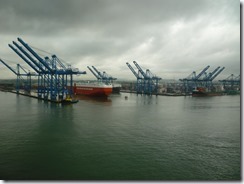



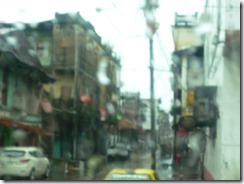














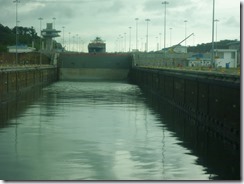




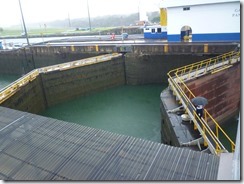






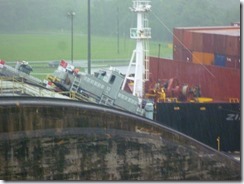












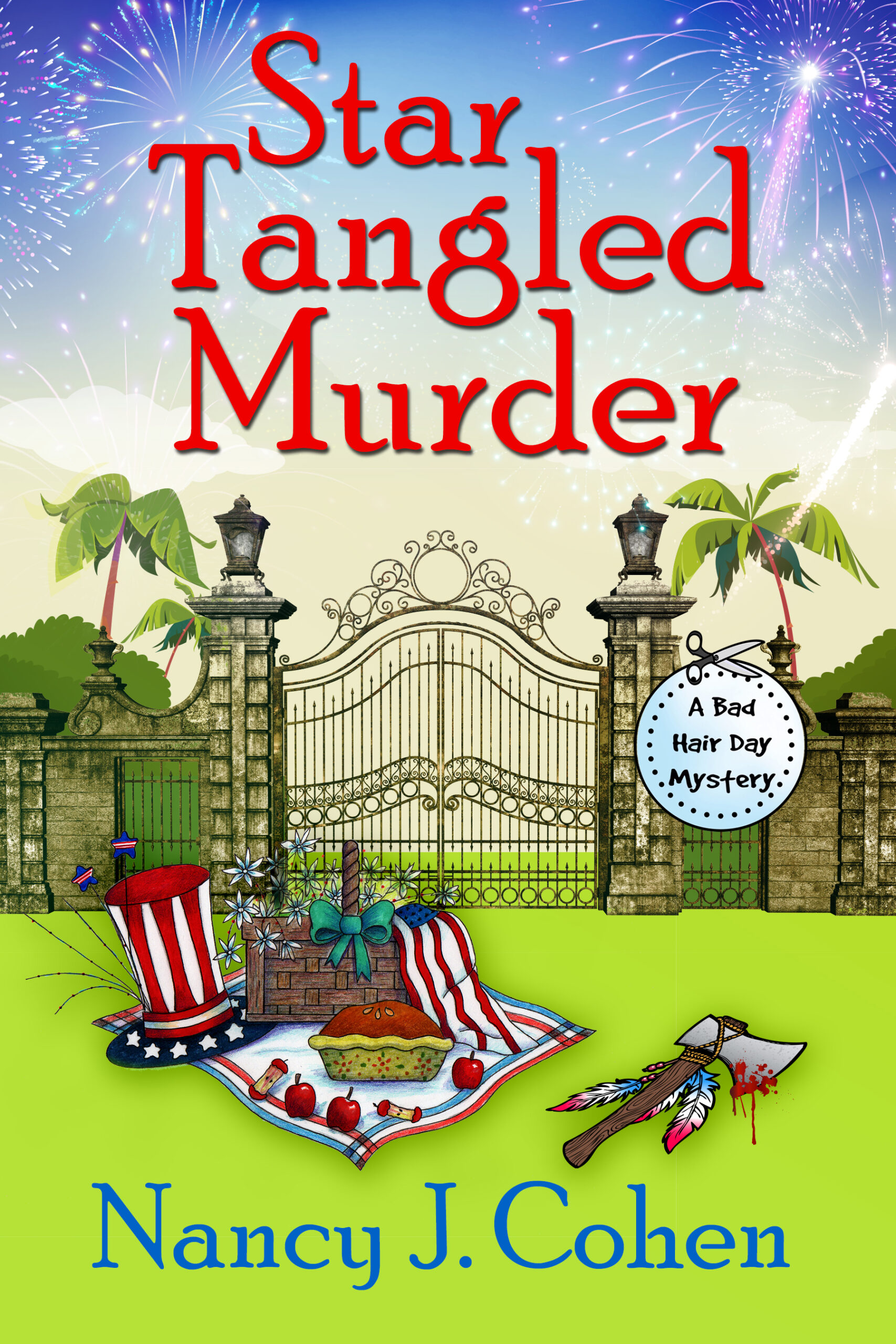


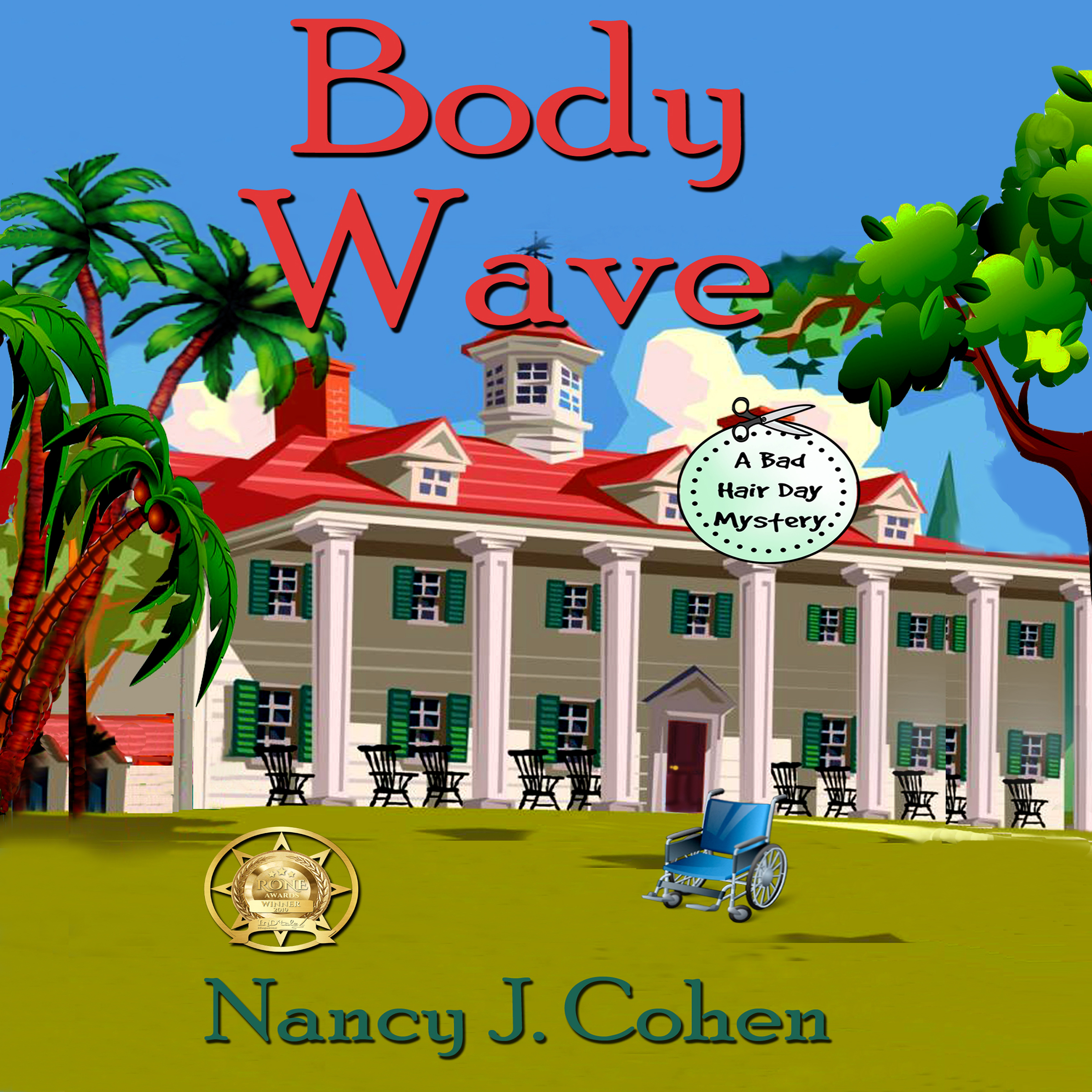


I was wondering the same thing: where the revenues go after you described the poverty around you. I had no idea it was so narrow, or is the picture you took just tricking me?
Yes, it is very narrow. The ship just fits between the walls. The expansion canal can take larger ships and is wider.
Oh there’s a bigger one. That makes sense. Seems like a lot of ships might get stuck in this one though.
I imagine they know the exact measurements. This one’s been in operation for a long time.
I hope you’re right. Trucks know their measurements and still mess up with clearance sometimes.
Beautifully! Thank you!
Thank you for visiting!